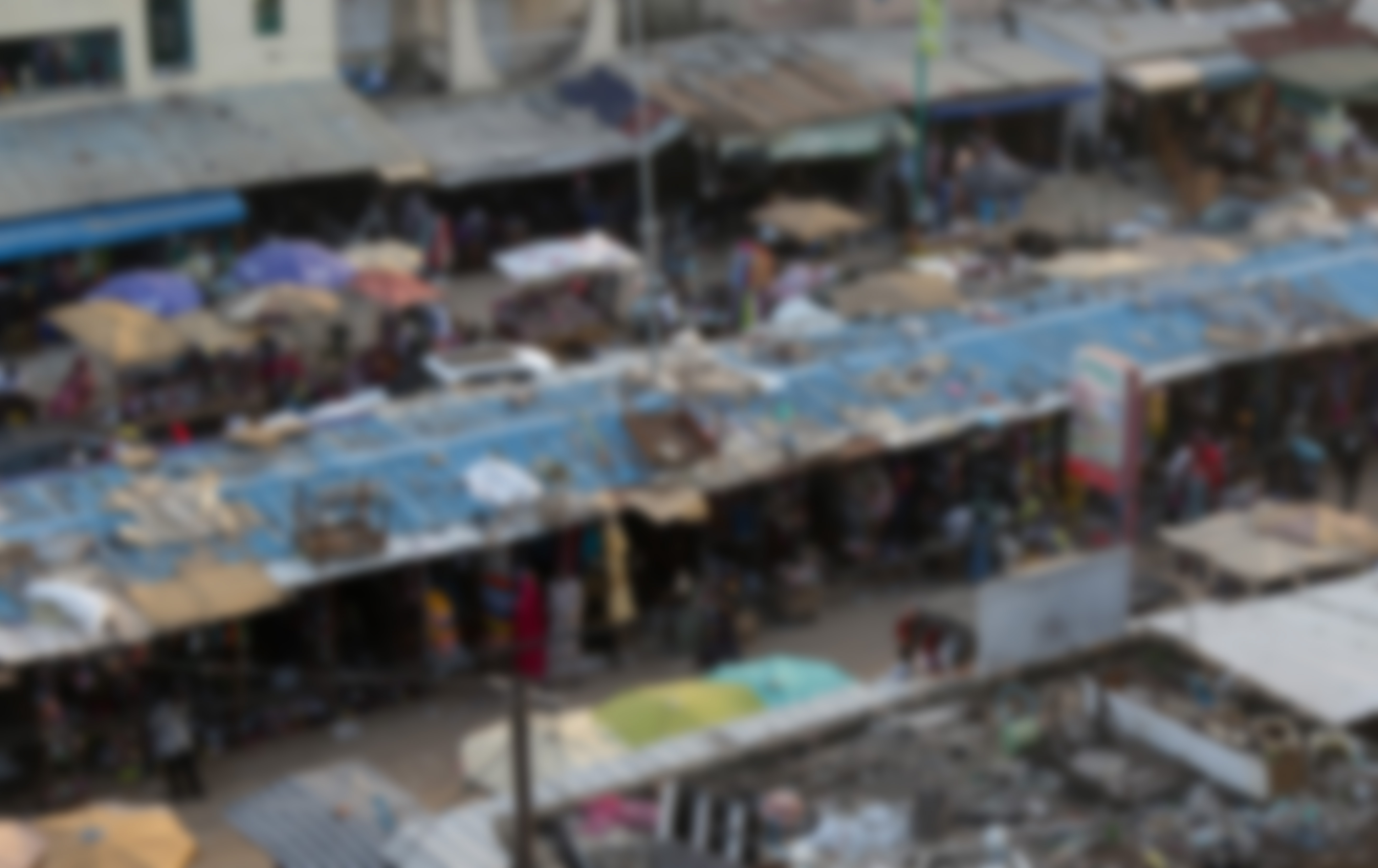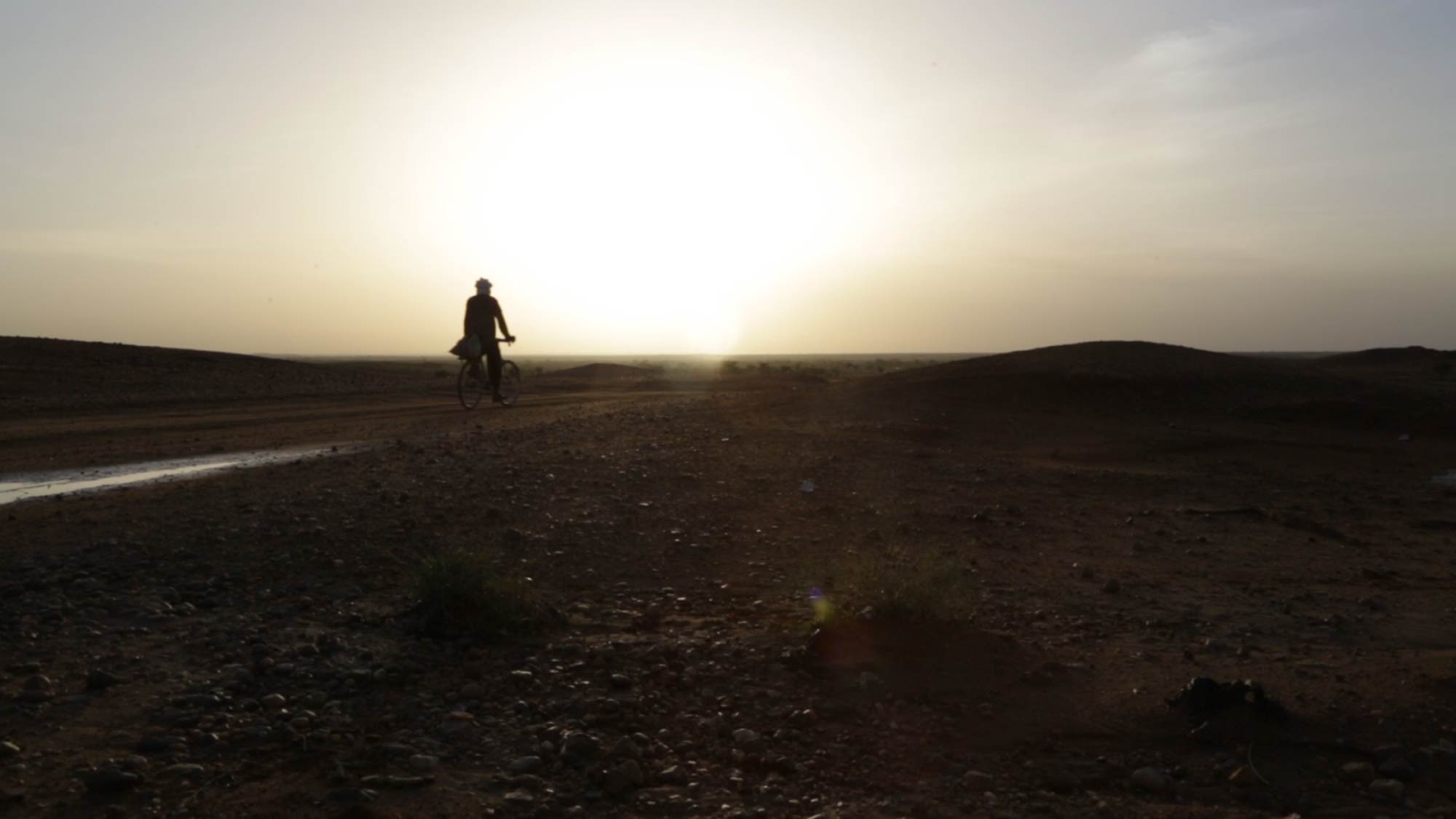The path to new lives in the Americas starts in Ghana for many migrants and refugees. Here they assess the promise and the perils of individual journeys that have led to starkly different outcomes.
“Our elders and politicians do not care for us… When you grow up here, you have to somehow find a way to escape.”
Abdul Majeed
Inside a hotel room in Mexico, Yahaya also recorded his improvised travel guide – messages to be sent back to friends he left behind:
- “Pack enough food for your trip in the jungle.”
- “Look for Santiago or Mama Africa in Turbo. They charge $700 to get you into Panama.”
- “Keep your money away from the Colombian Police. They can take half.” [Majeed kept his money inside a condom, tucked in his anus. Others unscrew and empty phone chargers to hide their money.]
- “The people in Costa Rica are friendly.”
- “There is a lot of security in Nicaragua, but you’ll find farmers at the border who’ll show you how to go without detection by the military.”
- “There are pickups, ambulances and land rovers that can carry you. You’ll pay between $300 and $700. Prices change all the time.”
- “At the Nicaraguan border to Honduras, you’ll find young guys who’ll charge you between $20 and $30 and carry you on horsebacks. They’ll take you to Honduras immigration officers in Choluteca, but the officers accept bribes of $50 or $30 dollars. They treat you leniently if you pay.”
- “From here, take a bus to Agua Caliente in Honduras, near Guatemala border.”
- “There’s a guy here named Dickson. He’s lived in America for 15 years. He takes between $70 to $100. He transports you from Honduras into Guatemala. You’ll see an old woman in a house on the way. Give her about $10 if you have.”
- “Bribe the immigration officers you meet in Guatemala; else they’ll detain you for a month.”
- “Pick a bus to Guatemala City. It costs about $100 from the border.”
- “From here, buy a ticket to Ciudad Tecún Umán. It’s the border between Mexico and Guatemala.”
- “Don’t cross the border at night. Sleep in a hotel if it’s late.”
- “Take a canoe ride that crosses a river into Mexico. You’ll be handed over to Mexican immigration in Tsiapas. You’ll be kept in a camp and fed while they process you. You’ll be given 30 days to leave the country.”
“I feel like God has neglected me, but there is nothing you can say. These people started from scratch just like me, so I must be happy for them.”
Abdul Majeed
Full Circle
The dense mountainous wilderness that spans the Colombia-Panama border has always resisted human authority. That makes it ideal for the movements of shy wildlife, clandestine paramilitary groups, and a steady stream of international migrants.
For a majority of migrants headed for the United States and North America, the remote Darien Gap is a required trek. This is where Abdul Majeed lay awake one cold January night this year, unable to sleep.
By Majeed’s count, there were about seventy others with him that night, the most varied group of nationalities he had seen in his lifetime. “Somalis, Indians, Senegalese, Nepalese, Ghanaians, Bangladeshis, Cubans, Haitians and Nigerians,” he recalled.
“Our elders and politicians do not care for us… When you grow up here, you have to somehow find a way to escape.”
Abdul Majeed
All were migrants heading north, arriving at this remote place from different paths, but lured by the common promise of a better life.To pass the night, the group formed a circle of bodies. They lit a log fire, which lay in their midst. The fire kept Majeed’s attention, but every chirp and turn in the jungle rattled his nerves.
To get this far, Majeed – a tall, 27-year-old Ghanaian with a ready smile on a calm face – had sought the services of a smuggler in Turbo, the port town that sits near the border on Colombia’s northern coast. He paid $700. In exchange, the man facilitated his transportation to Panama without detection by immigration or state security officers. The smuggler – Majeed remembers his name as Santiago – is known for helping migrants navigate the difficult terrain from Turbo to Capurganá, the last town on the Colombian Caribbean coast before the border with Panama. Santiago provided a guide to lead Majeed and other migrants into the wilderness that separates South and Central America. The guide pointed them in the direction of Panama. “Keep going this way. It’s not very far,” Majeed recalled him saying as they set off on what would become a week of walking through jungle before they reached Panama.
In West African countries like Ghana and Nigeria, migrants seeking to enter the United States without documents often fly to Brazil, Peru or Ecuador, where visa requirements are not as stringent. There, they hire smugglers and bribe immigration officers who facilitate the journey. Some take boat rides, ride on horseback or find themselves hidden in trucks rolling across borders. As they journey north, they become part of a greater flow of migrants from Africa, Southeast Asia and Latin America.
The Promise of America
The journey that led Abdul Majeed to the Darien Gap started nineteen months before, in Nima, the neighborhood where he grew up in Accra, Ghana’s capital city. Ranking as one of Accra’s poorest neighborhoods, Nima is known for its spice market, Internet cafés teeming with quiet hackers, churches, mosques – and a notorious lack of economic opportunity for young Ghanaians. Records from Ghana’s immigration service show Nima is also a hot-spot for desperate migrants like Majeed.
“Our elders and politicians do not care for us,” Majeed said, summing up Nima’s underdevelopment. “When you grow up here, you have to somehow find a way to escape.”
For Majeed, the decision to leave was easy.
“If you don’t leave, you become a sakawa boy (cyber fraudster) or just die broke,” he said, describing how, in his teenage years, he kept his eyes open for opportunities beyond Nima. That’s why he attended high school far from his home, and took for his first job the role of sales agent for an insurance company in one of Accra’s top-end neighborhoods.
His savings from that first job became his lifeline when an opportunity to travel came along. It was June 2014 and Ghana had qualified for the World Cup in Brazil. Majeed, a long-time member of a loose group of soccer fans called the Ghana Supporters Union, found reason to apply for travel visas. He was one of an estimated ten thousand Ghanaians allowed to visit Brazil that year. “From what we know, only one thousand of those who received visas went to see the games,” says Ibrahim Lan-Ghani, an officer at Ghana’s immigration fraud office. There is no official record of what the other nine thousand did with their visas. For Majeed and a number of young men, friends from Nima, Brazil was an open door. They merged savings with loans from relatives and friends. And they purchased one-way tickets.
As Majeed made his way to Brazil on Turkish Airlines, 24-year old Marwan Yahaya, who also grew up in Nima, was also traveling West.
Yahaya has relatives in Spain and Germany and knew former neighbors living in the United States. He too wanted to travel. After the World Cup, he met Majeed in Sao Paulo, where they discovered their mutual origins and talked about their paths to Brazil. Such encounters were rife at the time. Those who stayed behind after the World Cup had to find a way to move on. They met in mosques or street corners, they shared food, job offers and sleeping places. Yahaya got a job at a chicken factory. Majeed hopped between menial jobs in restaurants and factories. He also applied for Protocol, an official Brazilian document that allows migrants to stay in the country for a year.
Bribes, detentions and the survival manual
Within the informal associations and connections migrants made on street corners and in Brazil’s mosques, opportunities emerged through conversations, phone calls and messages spread via social media. “People send voice notes, videos and pictures to show others what they are up to,” Majeed said. He learned about lands beyond Brazil and studied them on online maps. He’d get updates from friends and acquaintances who had made it to the United States. He’d seen images of others crossing the Mediterranean on boats to Europe, and others who’d gone before him through the Darien Gap.
“I was prepared for most of the things that would come,” Majeed said, framing his state of mind the day he decided to leave Brazil. In nineteen months of odd jobs, he had saved about $3,700, an amount he projected would get him to the United States. He didn’t know it, but Yahaya had also embarked on the journey, seven months before.
From Brazil, Yahaya had flown to Ecuador, where he heard Ghanaians did not need visas. He stayed in Quito for three weeks, “just chilling and staying in cheap hotels.” After three weeks, he travelled to Colombia, but was caught and deported back to Ecuador. “I spent one day in Ecuador, then went back to Colombia once again,” he said. This time, he paid a man in Ecuador to make sure he was not deported again, and then $700 more to Santiago in Turbo.
Majeed headed first to Peru before reaching Colombia. Though their routes differed, each remembered similar bouts of exhaustion, hunger and insect bites that left their vision blurred and their bodies sick.
Inside a hotel room in Mexico, Yahaya also recorded his improvised travel guide – messages to be sent back to friends he left behind:
- “Pack enough food for your trip in the jungle.”
- “Look for Santiago or Mama Africa in Turbo. They charge $700 to get you into Panama.”
- “Keep your money away from the Colombian Police. They can take half.” [Majeed kept his money inside a condom, tucked in his anus. Others unscrew and empty phone chargers to hide their money.]
- “The people in Costa Rica are friendly.”
- “There is a lot of security in Nicaragua, but you’ll find farmers at the border who’ll show you how to go without detection by the military.”
- “There are pickups, ambulances and land rovers that can carry you. You’ll pay between $300 and $700. Prices change all the time.”
- “At the Nicaraguan border to Honduras, you’ll find young guys who’ll charge you between $20 and $30 and carry you on horsebacks. They’ll take you to Honduras immigration officers in Choluteca, but the officers accept bribes of $50 or $30 dollars. They treat you leniently if you pay.”
- “From here, take a bus to Agua Caliente in Honduras, near Guatemala border.”
- “There’s a guy here named Dickson. He’s lived in America for 15 years. He takes between $70 to $100. He transports you from Honduras into Guatemala. You’ll see an old woman in a house on the way. Give her about $10 if you have.”
- “Bribe the immigration officers you meet in Guatemala; else they’ll detain you for a month.”
- “Pick a bus to Guatemala City. It costs about $100 from the border.”
- “From here, buy a ticket to Ciudad Tecún Umán. It’s the border between Mexico and Guatemala.”
- “Don’t cross the border at night. Sleep in a hotel if it’s late.”
- “Take a canoe ride that crosses a river into Mexico. You’ll be handed over to Mexican immigration in Tsiapas. You’ll be kept in a camp and fed while they process you. You’ll be given 30 days to leave the country.”
The two friends embarked on their journeys with the help of audio recordings from migrants who’d gone before them. The clips had been mailed back home, for friends and others contemplating their own migration. The tips have become a manual of sorts. The recordings sum up the journey, and then add things like places to avoid along the way, and contact details for trustworthy smugglers.
For Majeed and Yahaya, it took about eight weeks across eight countries to arrive in Mexico.
From there, it was a matter of time and money: They had 30 days to cross Mexico if they still have the temerity to face the U.S-Mexico border. Majeed chose to travel to Matamoros, Tamaulipas. Months before, Yahaya had headed to Tijuana.
“Nothing prepares you for this”
Until U.S. President Donald Trump’s tough rhetoric on migration streamed out to the rest of the world – during and after the 2016 US elections – many would-be migrants in Africa, like Majeed, were naïve about the country’s immigration system.
“I thought it was just a matter of walking through the border and telling them you wanted asylum,” he said. He had prepared his cover story: people in his neighborhood wanted to lynch him because he was friends with homosexuals.
It wasn’t so easy.
“The moment you tell them [Immigration and Customs Enforcement officials] you’re seeking asylum, they pounce on you,” Majeed said. He was questioned, and then taken to a cold room for more questions that lasted “for about four or five hours.”
He remembered the day vividly: March 27, 2016.
For 15 months afterward, he would be moved to five detention centers across the United States. He appeared before a judge “who does not even look at your face” as his request for asylum was turned down. “Detention was hell.”
Yahaya also experienced the “cold room.” He spent 17 months in detention in Adelanto, in California’s San Bernardino County. While there, three colleagues he had traveled with won release after sponsors paid their bonds. He harbored similar hope after a lawyer assured him he would help with his asylum bid. But two days later, he woke up to his cell supervisor telling him he was being deported. On February 9, 2017, he was flown to New York’s Kennedy airport and then unceremoniously put on a Delta Airlines flight to Accra.
Four months later it was Majeed’s turn. He and 78 others were chained to their seats in a military aircraft and flown from Maine to Accra.
“I feel like God has neglected me, but there is nothing you can say. These people started from scratch just like me, so I must be happy for them.”
Abdul Majeed
By March of this year, the US had deported over 150 people back to Somalia. At the same time, in India, there was news of the impending deportation of 270 people. In May, five Kenyans were deported from the US.
This summer, back home in Nima, Yahaya and Majeed sat on the steps of a neighborhood restaurant and reflected on their journeys, and coming full circle. They mused about some of their traveling companions who had made it into the US.
“Some have started making enough money to send down to their parents down here,” Majeed said, noting that another migrant he traveled with recently got married in Chicago. “I feel like God has neglected me, but there is nothing you can say. These people started from scratch just like me, so I must be happy for them”.
Majeed is contemplating returning to the migrant trail, although he won’t go as far as the U.S. border this time.
The Brazilian Protocol document he applied for should be ready. If he can make his way back across the Atlantic, he’ll plant roots in Brazil or Costa Rica, “where the people are warm and nice.”








